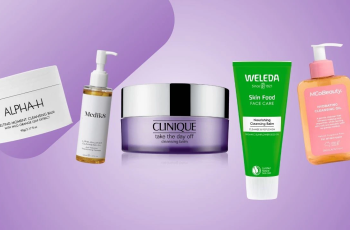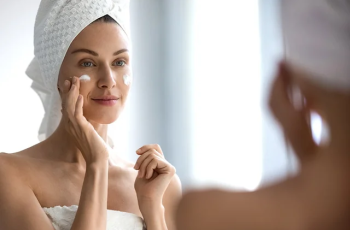
Do I Need a Serum and a Moisturizer?
Many of my patients and Reddit followers alike often ask me this question: “Do I need to use a serum and a moisturizer, or can I pick one?” The answer for most people is yes, you do need both a serum and moisturizer.
However, there are a few skin types that can get away with just using a serum alone. In this guide, I will walk you through the differences between serums and moisturizers, as well as how best to incorporate them both into your skin care regimen based on your skin type.
First, if you don’t already know your skin type, take the quiz to find out so you will know which advice to follow.
Take the Quiz
Most skin types need a serum and a moisturizer.
Very oily types can get away with only using a serum.
Layer serums under moisturizers to increase absorption and efficacy.
Table of content
serum vs moisturizer
Serum vs. Moisturizer: What’s the Difference?
Serums and moisturizers are often confused because they sometimes have a similar consistency. However, they are two different products with different goals. Serums are lightweight skin care products that contain concentrated active ingredients to treat a specific skin concern.
Skin-brightening serums, for example, might contain vitamin C, kojic acid, and other lightening ingredients, while an anti-aging serum may contain ingredients like growth factors, exosomes, and peptides. The best serum for you will depend on both your skin type and the skin concerns you are looking to treat.
Moisturizers, on the other hand, tend to be thicker than serums and contain ingredients that hydrate and seal moisture into the skin.
Barrier repair moisturizers go a step further and mimic the skin’s natural lipid structure to strengthen its natural barrier, which not only keeps moisture in but also keeps irritants and allergens out.
While some serums may contain hydrating ingredients, most do not contain this special 1:1:1 ratio of lipids to directly target skin barrier function.
Thus, you use serums to deliver active ingredients that target a specific skin concern, and moisturizers to hydrate and protect the skin.
Benefits of Serums
Deliver concentrated active ingredients directly to the skin
Target specific concerns like acne, dark spots, and fine lines
Lightweight texture, making them suitable for layering
Available for all skin types and concerns
Benefits of Moisturizers
Hydrate the skin and prevent dryness
Reinforce the skin’s protective barrier
Provide occlusion
Increase the absorption of serums and other skin care products
Some include additional ingredients to reduce redness and inflammation
When to combine serums and moisturizers
When to Combine Serums and Moisturizers
Because serums and moisturizers are used for two distinct purposes, most skin types should use both a serum and a moisturizer. The best way to do this and which specific products to use will depend on your skin type.
Dry Skin Types
If you are a dry type, you need a barrier repair moisturizer and a serum. A barrier repair moisturizer will help to restore the right ratio of lipids that your skin needs in order to have a healthy skin barrier . It will also help to increase the absorption of your serum when placed on top of the serum.
The serum you use will depend on which skin problem you are looking to target. There are many hydrating serums that can help to add extra moisture, as well as skin-brightening, anti-inflammatory, and anti-aging serums.
Some popular moisturizers and serums for dry skin include:
Oily Skin Types
Here is where the exception comes in: very oily skin types can get away with using a serum alone and may not need a moisturizer. However, slightly oily types or “combination” types will still benefit from a light moisturizer. Choose one that is more humectant-based than occlusive-based to avoid clogged pores and breakouts.
As with dry skin types, the right serum for oily skin depends on your specific skin concerns. Many oily skin types do well with antioxidant, skin-brightening, anti-aging, or skin-calming serums.
Some popular moisturizers and serums for oily skin include:
How to Layer Serums and Moisturizers
Serums are typically layered on the skin before moisturizers , as this helps to increase the absorption and penetration of the active ingredients in the serum. Applying a moisturizer before a serum will slow the absorption rate of the serum.
In some cases, this may be advised if you are trying to gradually introduce your skin to a new ingredient. However, in most cases, serums should be applied before moisturizers.
Bottom Line
In most cases, you should use both a serum and a moisturizer. Serums deliver active ingredients to the deeper layers of skin to treat specific problems like dark spots, wrinkles, or redness, while moisturizers hydrate and protect the skin. When used together properly, the right moisturizer can help to enhance the effectiveness of your serum.
To choose the best serums and moisturizers for your skin, you must first know which of the 16 skin types you are. Once you know your skin type, we can help you create a customized skin care regimen that’s a perfect match for your skin’s unique needs.

